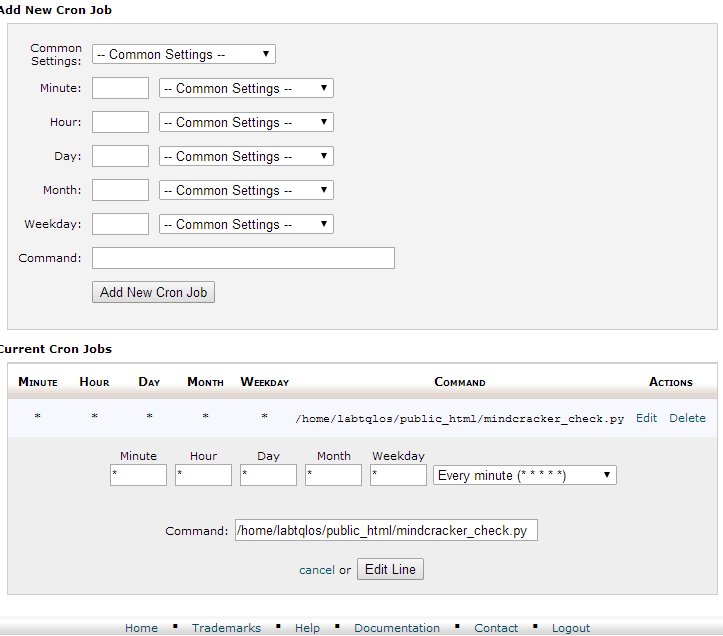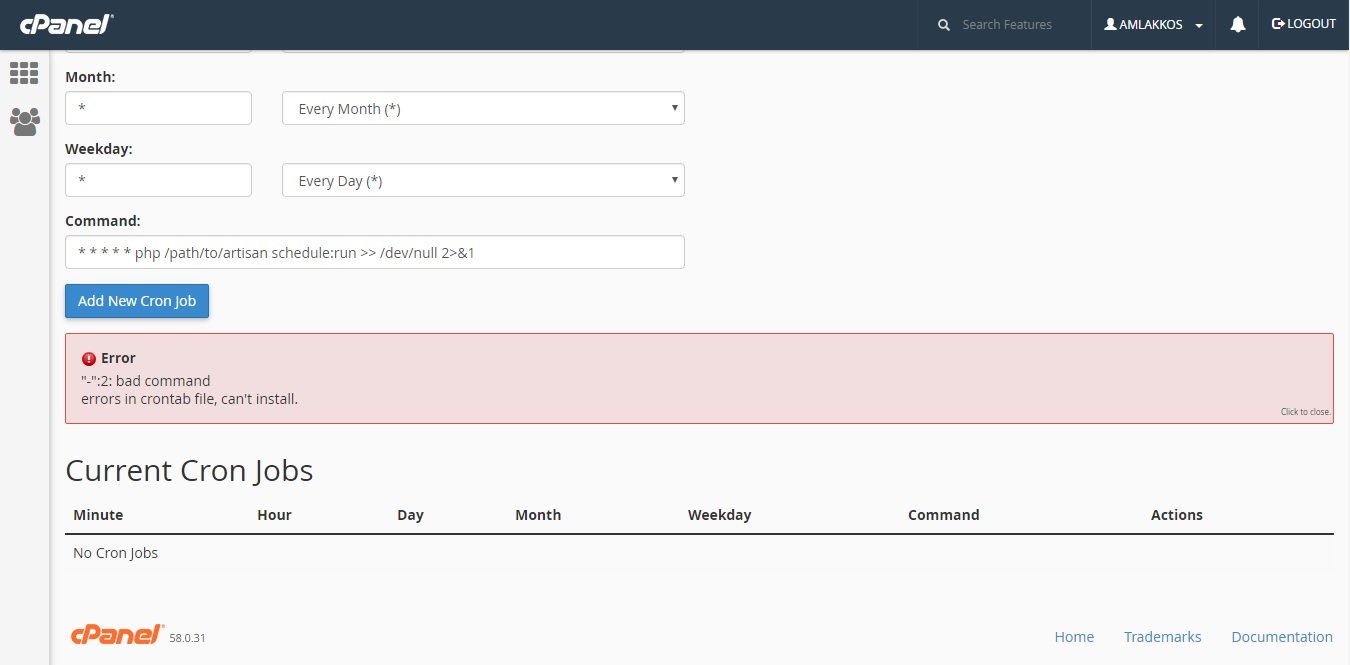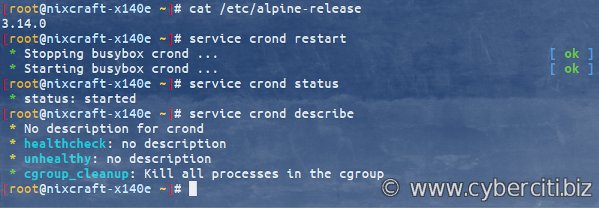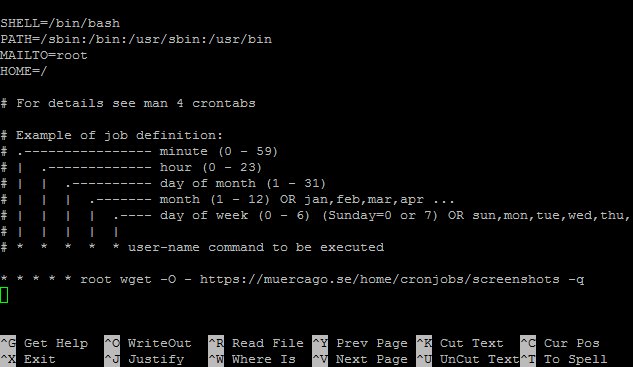Python cron is a handy tool that allows you to automate tasks on your server. Whether it’s scheduling regular backups, running data analysis scripts, or sending out automated emails, python cron has got you covered. With just a few lines of code, you can set up a cron job that executes your Python script at predetermined intervals. In this article, we’ll dive into the world of python cron and explore how it can simplify your workflow and save you time. So, if you’re looking to automate repetitive tasks effortlessly, keep reading!
Python Cron: Automating Tasks with Ease
Python Cron, also known as cron for Python, is a powerful tool that allows you to automate repetitive tasks on your computer or server. With Python Cron, you can schedule scripts or commands to run at specific intervals, making it a valuable tool for developers, system administrators, and anyone who wants to streamline their workflow. In this article, we’ll explore the ins and outs of Python Cron and how it can simplify your life.
What is Python Cron?
Python Cron is a Python package that provides an interface to the cron daemon, a time-based job scheduler in Unix-like operating systems. The cron daemon allows users to schedule tasks to run automatically at specified times or intervals. With Python Cron, you can easily create, schedule, and manage cron jobs using Python code.
Setting Up Python Cron
Setting up Python Cron is a straightforward process. Follow these steps to get started:
- Make sure you have Python installed on your system. Python Cron works with both Python 2 and Python 3, so choose the version that suits your needs.
- Install the Python Cron package using pip, the Python package installer, by running the following command in your terminal or command prompt:
pip install python-crontab - Once the installation is complete, you can start using Python Cron in your Python scripts.
Creating Cron Jobs
To create a cron job with Python Cron, you’ll first need to import the necessary modules and classes. Here’s an example:
from crontab import CronTab
# Create a new cron tab
cron = CronTab(user='your_username')
# Create a new cron job
job = cron.new(command='python /path/to/your_script.py')
# Set the schedule for the cron job
job.minute.every(15)
# Write the cron job to the cron tab
cron.write()
Let’s break down the code snippet above:
from crontab import CronTab: This line imports the CronTab class from the crontab module.cron = CronTab(user='your_username'): This line creates a new cron tab for a specific user. Replace ‘your_username’ with the desired username. If you want to create a cron job for the current user, you can omit theuser='your_username'parameter.job = cron.new(command='python /path/to/your_script.py'): This line creates a new cron job with the specified command. Replace/path/to/your_script.pywith the actual path to your Python script.job.minute.every(15): This line sets the schedule for the cron job to run every 15 minutes. You can customize the schedule using various methods provided by the CronTab class, such ashour.on(),day.on(),day.every(), and so on.cron.write(): This line writes the cron job to the cron tab, saving the changes.
Managing Cron Jobs
Python Cron also allows you to manage existing cron jobs, such as listing, updating, and removing them. Here are some useful methods provided by the CronTab class:
cron = CronTab(user='your_username'): Creates a new cron tab for the specified user.cron.remove_all(): Removes all cron jobs from the cron tab.for job in cron:: Iterates over all cron jobs in the cron tab.job.enable(): Enables a cron job.job.enable(False): Disables a cron job.job.set_comment('Your comment'): Sets a comment for the cron job.job.clear(): Clears the settings of the cron job.
Here’s an example that demonstrates how to list and remove cron jobs:
from crontab import CronTab
# Create a new cron tab
cron = CronTab(user='your_username')
# List all cron jobs
for job in cron:
print(job)
# Remove a specific cron job
cron.remove_all(command='python /path/to/your_script.py')
# Write the changes to the cron tab
cron.write()
Handling Errors and Exceptions
When working with cron jobs, it’s essential to handle errors and exceptions properly. If a cron job encounters an error, it may fail silently, leading to unexpected results. Fortunately, Python Cron provides ways to handle errors effectively.
- Logging: You can use the built-in logging module in Python to log errors and relevant information about your cron jobs. By logging errors, you can easily troubleshoot issues and ensure that your cron jobs are running smoothly.
- Error Handlers: Python Cron allows you to define error handlers for your cron jobs. These error handlers can be functions or methods that are called when an error occurs during the execution of a cron job. By defining error handlers, you can gracefully handle errors and take appropriate actions, such as sending notifications or retrying the failed job.
Best Practices for Using Python Cron
To make the most out of Python Cron and ensure smooth execution of your cron jobs, consider the following best practices:
- Use Virtual Environments: When running cron jobs that depend on specific Python packages or environments, it’s recommended to use virtual environments. Virtual environments provide a self-contained environment for your Python projects, allowing you to isolate dependencies and prevent conflicts.
- Test Cron Jobs: Before deploying cron jobs in a production environment, it’s crucial to thoroughly test them in a development or staging environment. Testing helps identify and fix any issues or bugs early on, preventing potential problems when the cron jobs are live.
- Monitor and Log: Regularly monitor your cron jobs to ensure they are running as expected. Implement logging and error handling mechanisms to capture any errors or unexpected behavior. Monitoring and logging can help you quickly identify and resolve issues, minimizing downtime and ensuring the smooth operation of your automation tasks.
- Document Cron Jobs: Documenting your cron jobs, including their purpose, schedule, and any dependencies, is crucial for maintaining and troubleshooting them in the future. Documenting can save you time and effort when making changes or diagnosing issues.
Python Cron is a powerful tool that simplifies the automation of tasks in your Python scripts. With Python Cron, you can easily create, schedule, manage, and monitor cron jobs, saving time and effort in repetitive tasks. By following best practices and handling errors effectively, you can unleash the full potential of Python Cron in streamlining your workflow and boosting productivity.
Frequently Asked Questions
Here are some frequently asked questions about Python Cron:
Q: Can I use Python Cron on Windows?
A: Python Cron relies on the cron daemon, which is available in Unix-like operating systems. However, you can use third-party software like “Cron for Windows” to run cron jobs on Windows machines.
Q: Can I run Python scripts directly with cron?
A: Yes, you can run Python scripts directly with cron. Simply specify the path to the Python interpreter and the path to your script in the cron job command.
Q: Can I run cron jobs at intervals shorter than a minute?
A: Yes, you can run cron jobs at intervals shorter than a minute by using additional fields like seconds or microseconds in the cron schedule.
Q: Can I run cron jobs as a specific user?
A: Yes, you can run cron jobs as a specific user by specifying the desired user when creating the cron tab.
Q: How can I view the output of cron jobs?
A: By default, the output of cron jobs is sent to the email address associated with the user running the cron job. You can also redirect the output to a file by adding > /path/to/output.log 2>&1 at the end of the cron job command.
Q: Can I use Python Cron in Django projects?
A: Yes, you can use Python Cron in Django projects to automate tasks such as database backups, sending emails, or generating reports. The Python Cron package integrates seamlessly with Django.
Q: Are there any alternatives to Python Cron?
A: Yes, there are other alternatives to Python Cron, such as “cronie” and “anacron” for Unix-like systems. However, Python Cron offers a convenient and pythonic way to manage cron jobs directly in your Python scripts.
Remember, Python Cron is a versatile tool that can save you time and effort by automating repetitive tasks. Whether you’re a developer, system administrator, or anyone looking to streamline your workflow, Python Cron is worth exploring.
How to Schedule a Python Script with a Cron Job
Frequently Asked Questions
What is Python Cron?
Python Cron is a library in Python that allows you to schedule and automate recurring tasks or scripts to run at specific intervals. It is commonly used for automating repetitive tasks such as data backup, log rotation, sending periodic reports, and more.
How do I install Python Cron?
To install Python Cron, you can use pip, the Python package installer. Open your terminal or command prompt and run the following command: pip install python-cron. This will download and install the library and its dependencies on your system.
How can I schedule a task using Python Cron?
To schedule a task using Python Cron, you need to create a CronTab object and define the schedule for your task. You can specify the desired timing using the cron syntax, which includes fields for minute, hour, day of the month, month, and day of the week. Once you have set up the schedule, you can execute your task accordingly.
Can I run Python scripts with Python Cron?
Yes, you can use Python Cron to schedule and execute Python scripts. Simply specify the path to your Python script when defining the task in the CronTab object. Python Cron will then execute the script according to the scheduled timing.
What are some common use cases for Python Cron?
Python Cron is useful for various automation tasks, including data processing, database maintenance, file system operations, and server administration tasks. It can be particularly handy when you want to automate repetitive tasks that need to be executed at specific intervals, saving you time and effort.
Is Python Cron platform-specific?
No, Python Cron is a cross-platform library and can be used on various operating systems like Windows, macOS, and Linux. You can rely on Python Cron to schedule and execute tasks consistently across different platforms.
Final Thoughts
Python cron is a valuable tool for automating tasks on a scheduled basis. By utilizing the built-in cron functionalities in Python, developers can easily set up and manage recurring tasks. With Python cron, you can efficiently execute scripts, perform database backups, send email notifications, and much more. It simplifies the process of task automation, saving time and effort. Whether you need to run tasks daily, weekly, or at specific intervals, Python cron is the go-to solution for streamlining your workflow and ensuring timely execution of critical operations.




